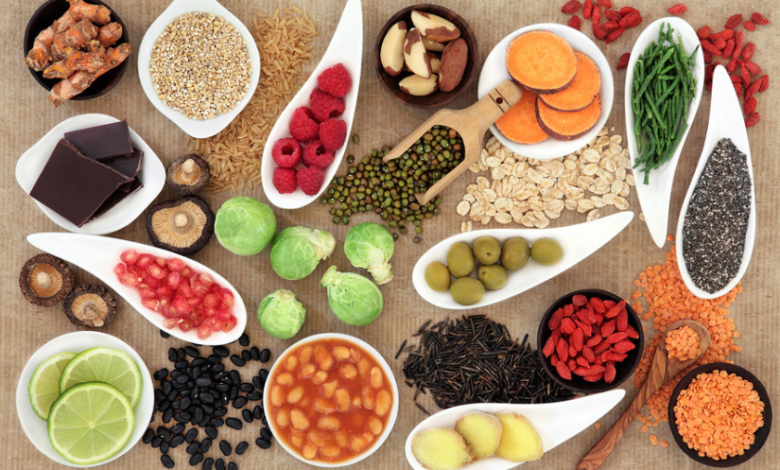Choosing the Right Nutritional Supplement for Your Lifestyle

Introduction
In recent years, health and fitness have become central topics in many people’s lives. With busy schedules and increasing awareness about nutrition, individuals are seeking convenient ways to fulfill their dietary needs. Among the options available, protein drinks have emerged as one of the most popular solutions. These beverages are no longer limited to athletes or bodybuilders. From office workers to seniors, more people are turning to them for their convenience, nutritional value, and ability to support an active lifestyle.
What Are Protein Drinks?
Protein drinks are beverages formulated to provide a high amount of protein, typically in liquid form. They are often used as meal replacements, workout recovery aids, or dietary supplements. These drinks can be made from a variety of protein sources, including whey, casein, soy, pea, and rice. The diversity in formulation allows consumers to choose according to their dietary preferences and restrictions.
Some protein drinks come pre-made in bottles or cartons, while others are available in powdered form that can be mixed with water, milk, or plant-based alternatives. Their popularity lies in the simplicity of use and the speed with which one can prepare or consume them.
Benefits of Protein Drinks
Protein is a critical macronutrient that plays a significant role in muscle repair, immune function, hormone production, and overall health. Protein drinks help meet daily protein requirements, especially for people who may not consume enough through their regular diet.
Muscle Growth and Recovery
One of the primary reasons fitness enthusiasts use protein drinks is for muscle growth and recovery. After an intense workout, the body needs protein drinks amino acids to repair damaged tissues and build stronger muscle fibers. Consuming protein drinks post-exercise provides a quick supply of these nutrients, reducing recovery time and improving performance.
Weight Management
Protein has been shown to promote satiety, which means it helps you feel full longer. Including protein drinks in your diet can aid in weight loss or weight management by reducing overall calorie intake. When used as a meal replacement, these drinks can be a practical and low-calorie alternative to high-fat or high-carb meals.
Convenience
For people on the go, preparing a balanced meal can be time-consuming. Protein drinks offer a quick and easy way to maintain nutritional intake. Whether you’re running between meetings or traveling, a protein drink can serve as a practical and nutritious option.
Dietary Support for All Ages
As people age, maintaining muscle mass becomes crucial. Older adults often face challenges in consuming adequate protein through traditional meals. Protein drinks serve as a suitable solution for seniors who may struggle with appetite or digestion. They are also helpful for children and teens with specific nutritional needs under proper guidance.
See also: sleep apnea hong kong: A Silent Threat to Urban Health
Types of Protein Used in These Drinks
Not all protein drinks are created equal. Understanding the source of protein used in these drinks can help you make better choices based on your health goals and dietary preferences.
Whey Protein
Whey is the most commonly used protein in drinks. It is derived from milk and is a complete protein, meaning it contains all nine essential amino acids. It is rapidly absorbed by the body, making it ideal for post-workout recovery.
Casein Protein
Also milk-derived, casein is absorbed more slowly. It is often used in drinks intended to be consumed before bedtime, providing a slow and steady release of amino acids throughout the night.
Plant-Based Proteins
For those who are vegan or lactose intolerant, plant-based protein drinks made from peas, rice, hemp, or soy are available. While some plant proteins are not complete on their own, many drinks combine different sources to create a balanced amino acid profile.
How to Choose the Right Protein Drink
With so many options available, choosing the right protein drink can be overwhelming. Here are some factors to consider:
Your Health Goals
If your goal is to build muscle, choose a drink with higher protein content per serving and minimal sugars. For weight loss, opt for a low-calorie drink with added fiber for satiety.
Ingredient Transparency
Always read the label. Look for drinks that have minimal artificial additives, sweeteners, or preservatives. Ideally, the ingredient list should be short and understandable.
Dietary Needs
Choose protein drinks that fit your dietary restrictions. Vegan-friendly, gluten-free, and lactose-free options are now widely available.
Taste and Texture
Since you may consume these regularly, taste and texture matter. Try a few brands to see which one appeals to your palate. Some people prefer thick, milkshake-like drinks, while others go for lighter, juice-style beverages.
Common Myths About Protein Drinks
There are many misconceptions surrounding protein drinks. Let’s address a few:
Myth 1: Only bodybuilders need them
This is not true. While athletes and bodybuilders benefit greatly, protein drinks can be useful for anyone with increased nutritional needs, from students to older adults.
Myth 2: They can replace whole foods
Although convenient, these drinks should not completely replace whole food sources. Whole foods offer additional nutrients such as fiber, vitamins, and minerals that drinks may lack.
Myth 3: They lead to kidney damage
There is no scientific evidence suggesting that moderate consumption of protein drinks causes kidney issues in healthy individuals. However, people with existing kidney problems should consult a healthcare professional.
Incorporating Protein Drinks Into Your Diet
Adding protein drinks to your daily routine doesn’t have to be complicated. You can drink them:
- As a post-workout recovery option
- As a breakfast replacement during busy mornings
- In between meals to avoid snacking on unhealthy options
- Mixed with fruits and vegetables in smoothies
Just ensure you’re not exceeding your daily protein requirements. Balance is key.
Final Thoughts
Protein drinks have become a staple in modern diets due to their convenience, nutritional benefits, and versatility. Whether your goal is to build muscle, lose weight, or simply stay healthy, these drinks can be a valuable part of your nutrition strategy. However, it’s important to choose the right product based on your individual needs and goals. When used wisely and combined with a balanced diet, they can significantly support your journey to better health.



